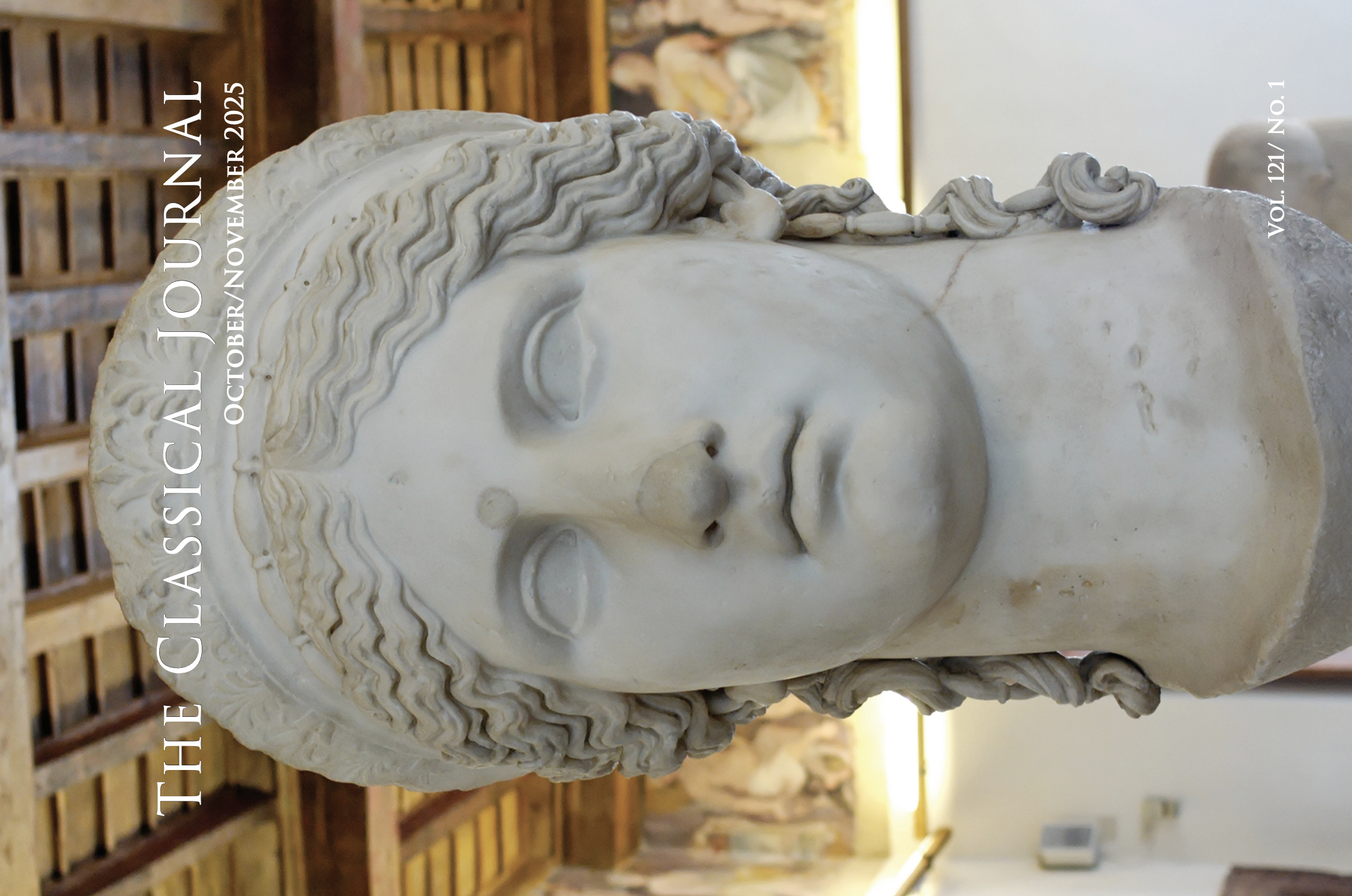The following articles are contained in CJ
107.2
Abstracts of Articles
Athena and Sparta at the Ending of Lysistrata
This paper addresses a long standing problem at the end of the Lysistrata:
why does the Spartan ambassador invoke the Spartan Athena Polias?
I reconsider the appropriateness of this ending by examining more closely the epithets used to
describe Athena in the Spartan song, namely παμμαχος / παμμαχος
and χαλκιοικος. I conclude that
her invocation involves a humorously tendentious interpretation of the Spartan pantheon through
Athenian eyes.
WHY LUCAN'S POMPEY IS BETTER OFF DEAD
The unexpected return of Lucan's Pompey to civil war as a ghost (9.1-18) leads to newfound
success vis-à-vis enemies and allies alike.
The language and imagery of this postmortem narrative revisits the portrait of Pompey's decline in Books 1-2,
where it activates a latent theme of victorious return in spite of death. Pompey's acts of possession as a ghost
further intensify the impact of his return, insinuating his presence into
the subsequent history of Roman resistance to Caesarism.
THE SERVVS CALLIDVS AND RITUAL IMAGERY IN PLAUTUS' EPIDICVS
Plautus marks the title character of Epidicus as a special,
over-the-top instance of the seruus callidus stock type by associating him throughout
the play with various religious roles of increasing importance. Through claims made by both
the character himself and others, Epidicus is progressively figured as sacrificial victim,
sacrificer, embalmer, auspex, Agamemnon, and son of Vulcan. This "program of sacralization"
is original to Plautus and unique to this play, and offers a much more developed extension
of the kinds of religious imagery that characterize other
powerful Plautine serui callidi. It exemplifies how Plautus uses ritual imagery and religious
associations to reflect power relations between characters and the theatrical authority shown by the
dominance of the seruus callidus over the play as a whole, and it emphasizes the significant and
unparalleled extent of Epidicus' role in reuniting the play's long-separated citizen family.
POETIC SIMULTANEITY AND GENRE IN OVID'S METAMORPHOSES
In the proem of the Metamorphoses, Ovid exposes the invocational game that underlies the literary convention of poetic simultaneity (the illusion that the poem is evolving in real time before the reader's eyes). By playfully manipulating this poetic topos at the very moment the gods seem to be threatening to appropriate the poem, Ovid pushes back against the gods' generic intrusion and cleverly introduces his own unique form of epic.


